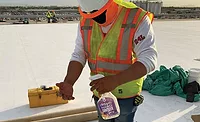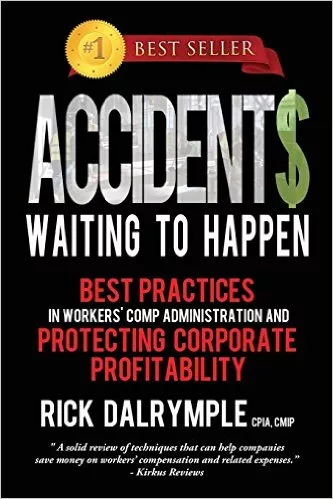8 COVID-19 Best Practices for Roofers from Roofers

In the ever-changing changing world that is the COVID-19 pandemic, it can be tough for roofing contractors to know how to proceed or what direction to take.
RC spoke with a number of roofing industry leaders and compiled the following useful tips on what roofing contractors can do to thrive during the COVID-19 crisis.
1. Take Care of and Inform Your Employees
First and foremost, every roofing contractor has emphasized the need to implement policies that will keep their employees safe and healthy. Many of these may be familiar by now: Practice social distancing, clean and sanitize workstations and equipment, work remotely if possible, and encourage employees to stay home when they feel sick.
Roofing contractors are also ensuring they are communicating with their workers to provide a sense of normalcy and continuity.
“Calm your employees, it’s the first thing we did,” said Steve Little, Head Coach of KPost Roofing & Waterproofing in Dallas. “We put out a memo to our employees and we have been in touch with our employees every three days with a memo…bringing them up to speed with the information that we have.”
Gregg Wallick, president and CEO of Best Roofing in Fort Lauderdale, has been producing five-minute videos every week to communicate with employees.
“I encourage everybody be as visible as you possibly can to everybody in your organization,” Wallick said. “I found that the video was a great way to get my message across.”
2. Go Digital
With shelter-in-place rules enacted across the country, contractors have lost the ability of in-person interactions with clients. The solution? Go digital.
Contractors can use aerial assessments and measurements to provide inspections that don’t require clients to be present. For in-person inspections, use apps like FaceTime with the customer so they see what the inspector is seeing while they remain inside.
Michelle Boykin, chief operating officer of Rackley Roofing in Nashville and a member of the Roofing Technology Think Tank (RT3), said her company has gradually replaced desktop computers with laptops over the past 18 months so people can work remotely.
She also suggests the AboutTime program for field workers to track their labor, and using programs like Slack and Zoom to communicate regularly with employees.
“What we’ve seen happen is almost better communication than what we had when we were just in the office because you have to be so intentional, and so it’s really helped us,” Boykin said during an RT3 webinar.
Don’t be afraid of asking for help or looking up information for using technology like Zoom. Beldon Group CEO Brad Beldon admitted that, despite running a company licensed in 48 states, he has had to play catch-up too.
“I have found personally that using YouTube is the best way to do it,” Beldon said with a laugh. “After three or four times of using the technology that’s out there, it’s really not that difficult.”
Don’t know where to start? Harness launched a free Safety Meeting/Toolbox Talk App for contractors to use, while Follow CRM has made the setup and 1:1 onboarding for its construction customer relationship management free in March and April.
3. Stay Informed
It can be difficult to digest the bombardment of news regarding COVID-19. Items like the Families First Coronavirus Response Act or new OSHA reporting guidelines can complicate what is already a trying time.
However, roofing groups like the RT3 and National Roofing Contractors Association (NRCA) have created webinars and resource pages for contractors to receive relevant information as it comes through the pipeline.
"I believe communication is the single biggest thing that NRCA can offer in this unprecedented time," NRCA CEO Reid Ribble said.
RC has created its own coronavirus coverage to keep contractors apprised of the latest news and information.
4. Invest in Training
Work may not be as plentiful as before, but that also opens up training opportunities. If a contractor works with a Hispanic workforce, consider holding English/Spanish lessons to improve communications. If there are online courses or seminars that can be completed, especially to improve digital communications, now is the time.
“Many companies are saying ‘I want to train right now, this is the time to sharpen my saw,’” said Ryan Groth of Sales Transformation Group. “The whole landscape is changing now, there’s a whole different approach, so you need to really be training your team.”
5. Re-evaluate Marketing
Social media platforms have exploded in use thanks to people being at home. Art Unlimited CEO Anna Anderson said now is the time to concentrate on social media marketing, including creating personalized content, sharing supportive messages, boosting/promoting content, and running ads.
“We’re seeing massive opportunities on social media,” Anderson said. “Be empathetic and reach out to some of your old prospects and connect with them socially…there’s a lot of money left on the table, and this is the time to go back.”
Regardless of the marketing channel, make sure clients know you’re open for business.
“If your consumer doesn’t know you’re an essential business, that’s a problem,” Anderson said.
6. Prepare Contract Clauses
Cotney Construction Law CEO Trent Cotney put together an in-depth article that highlights certain provisions contractors should consider, such as “force majeure” clauses and price acceleration provisions to protect themselves from major events like the COVID-19 pandemic.
“For companies that already have force majeure clauses in their standard contracts, it would still be wise to review those provisions to make sure they provide clear, comprehensive, and adequate protections for the company and consider whether terms such as ‘widespread epidemic,’ ‘pandemic,’ and/or ‘public health emergency’ should be added,” Cotney said.
7. Plan for the Worst
It’s difficult to know when things will return to normal, let alone the lasting effects the crisis will have. That being the case, roofing contractors are encouraged to prepare for worst-case scenarios.
Ken Kelly, president of Kelly Roofing in Bonita Springs, Fla., said his company created new budgets in light of the pandemic, including one where they cut their current budget in half.
“We said ‘Gosh, worst-case scenario what does this look like?’ And we’re prepared, line by line, to make any necessary cuts to meet that,” Kelly said. “It’s not going to be a scramble.”
8. Keep Looking for Opportunities
With people at home instead of work, they may be looking to take care of critical repairs and renovations that they otherwise haven’t got around to due to work schedules. As the Metal Roofing Alliance (MRA) points out, roofing projects lend themselves to social distancing.
“While homeowners may want to re-think an extensive kitchen remodel that would require many tradespeople and crews to be in and out of the house right now, most roofing installers and contractors require very limited access to your home, helping minimize any type of direct contact,” the MRA states.
This is also a great time to look for new hires. Kelly noted in an RT3 webinar that there will be a lot of people looking for work due to the lack of business and non-essential businesses closing down.
“I think that crews are going to be laid off by companies that can’t afford to run them on payroll, I think bartenders make fantastic salespeople because they love to talk to others, they don’t mind late hours and they don’t have a drinking problem,” Kelly said.
Looking for a reprint of this article?
From high-res PDFs to custom plaques, order your copy today!









